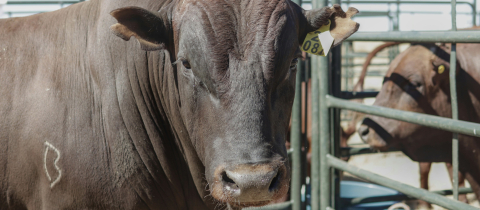“Your breath will smell as if you’d been French-kissing your dead grandmother.” Anthony Bourdain, chef, journalist, travel documentarian certainly had a way with words. Here he was describing the consequences of partaking of the flesh of the durian, known in Asia as “The King of Fruits.” The problem, as Bourdain discovered, is that the king needs a deodorant. I once had the pleasure of getting close up and personal with a durian, and never having French kissed a corpse of any sort, I would describe the fragrance as a blend of locker room aroma and car-squashed skunk. Others have suggested “turpentine and onions, garnished with a gym sock.” Durians smell so bad that in Asia they are banned from airplanes, hotels and public transport.
My skunk comparison seems quite appropriate because the smelly components of durian are sulphur compounds, similar to those found in skunk odour. Although researchers have identified sixteen odiferous compounds in durian pulp, most of the smell is accounted for by two specific ones, ethyl-2-methylbutanoate and 1-(ethylsulfanyl)ethane-1-thiol, if you must know. The first one is a derivative of butyric acid which is notorious for its indescribable pungency. The second one is “skunkish.” These compounds are produced when enzymes released by ripening tissues get to work on some of the naturally occurring amino acids in the pulp. The sulphur-containing amino acid, ethionine is the main culprit.
"Durian” is an Indonesian word and derives from "duri" which translates as thorn. Indeed, the durian is a thorny fruit in more ways than one. It is about the size of a large cantaloupe, is shaped like a football and has a hard shell covered with hard, sharp spikes. Let’s just say that when a durian falls from a tree, you don’t want to be standing under it. But eating it is a different matter. Devotees describe the taste of a well-chosen ripe fruit as exquisite. That choice, though, should be dictated by an expert, known as a "tukang durian." He’s a salesman, (it seems durians are always sold by men) who is installed in a roadside stall with a few chairs. After a selection has been made, the fruit is consumed on the spot since carrying it through crowds brings unwanted attention. Using public transportation is out of the question since the fruit is banned on buses, trains and airplanes. Hotels are also non-welcoming.
There are a couple of interesting durian legends. One claims that getting intoxicated while eating durians can lead to death and the other suggests that the fruit is an aphrodisiac. There may be something to the first one since durian extract has been found to inhibit aldehyde dehydrogenase, the enzyme used by the liver to break down alcohol. As far as any aphrodisiac effect is concerned, aside from a local saying that “when the durians are down, the sarongs are up,” there is no evidence. Eating the fruit does apparently make one feel warm.
I can’t really comment on that, or on the supposedly delightful flavour, or any aphrodisiac effect, because when offered a taste, I could not get past the scent of rotting onions tinged with rancid butter. And I certainly wasn’t up for exhaling the scent of a dead relative.







